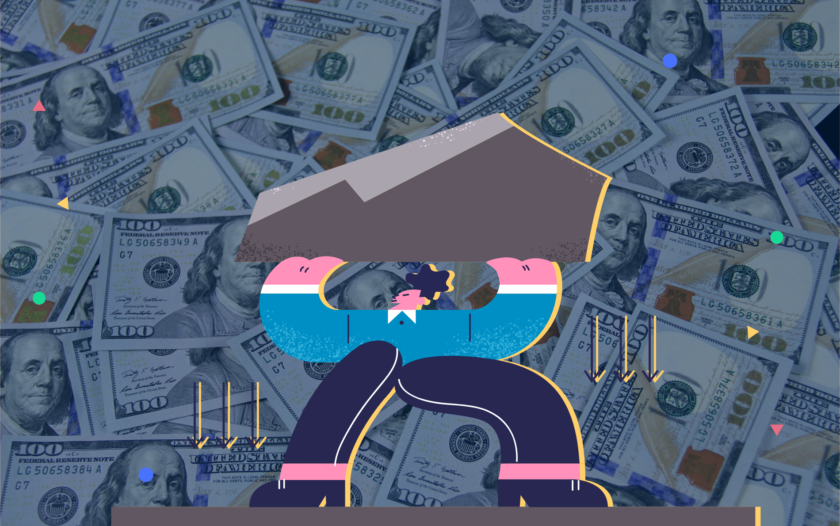If You Get This Type of Credit Card, Your Holidays May Be Ruined
About Harrison
Harrison Pierce is a writer and a digital nomad, specializing in personal finance with a focus on credit cards. He is a graduate of the University of North Carolina at Chapel Hill with a major in sociology and is currently traveling the world.
Read full bio
At a Glance
Retail credit cards can be enticing, with offers of cash back on every purchase or significant discounts throughout the year. However, as the Feds hike up interest rates, this type of credit card might be the worst you can get.
What to expect:
What to expect this holiday season?
Of all the different types of credit cards, you can typically expect the highest interest rates on retail credit cards. This is due to various factors, like the fact that they are generally much easier to get than other types of credit cards, and they offer lower credit limits and stricter rules around spending.
Even though these cards have always had higher interest rates, the current rates are soaring to unprecedented levels. The most expensive retail cards might come with a staggering 30.74% interest rate, making it extremely difficult to pay off debt if you carry a balance. On average, these co-branded credit cards are hovering around 26.72%, while many are right around 29.99%.
In comparison, the average APR among all credit cards at the time of writing is 18.94%, so retail cards are over eight points higher. Although many people might consider opening one of these cards to help pay for holiday expenses, this could be a huge mistake. If you purchase more presents than you can afford, you are stuck with a sky-high interest rate that will accumulate a lot of extra interest before you can pay off your balance. Even if the credit card gives you a discount on store purchases, you will likely still spend more money than you are saving.
Getting stuck with extreme interest payments when you think you are getting a great deal can certainly ruin the holiday season for everyone involved.
If you find yourself in credit card debt, you have options.
Find the Best Debt Consolidation Loan for You
Answer these simple questions to find solutions you're likely to get approved for
What debt do you want to consolidate?
Select all that apply
Others does not include mortgage
Debt Consolidation requires more than one debt account. Please select at least two debt types above.
Why are the Feds hiking up interest rates?
The Federal Reserve controls the interest rates and increases them in response to inflation to get price growth under control. In 2022, the Feds have raised interest rates six times, four of them by 0.75%. By making it more expensive to borrow money, the government is incentivizing people to hold onto their money and avoid financing, which then cools off the economy.
Although interest rates, inflation, and the economy can all be complex subjects to understand, it is essential to keep an eye on them, especially before making a big purchase or opening a new credit card. For example, increased interest rates can result in thousands, or hundreds of thousands, more paid over the lifetime of a mortgage. They can also make it more challenging to pay off other debts, like student loans or credit card debt.
Inflation is currently 8.2%
and the Federal Reserve wants to bring it down to 2%. In response, interest rates have gone up around 3.75% to 4%, with more increases coming.


What to look for in a credit card?
You must fully understand the terms and conditions before opening a new credit card. Many retailers can convince you to open a new card at checkout by offering a 20% discount on your purchase or a flashy 0% APR for several months. However, once that period is up and you get stuck with the regular interest rate, the card loses almost all value.
Feel free to say no when a retailer asks you to sign up for their card, as it is best not to decide this lightly. If it does sound like something you would be interested in, you should go home, read more about it, and weigh the pros and cons before agreeing.
Consider the rewards structure, redemption opportunities, APR, foreign transaction fees, and welcome bonus spending requirements before signing on the dotted line. When using your credit cards, try to avoid purchasing more than you can feasibly afford per month, as this lowers the interest paid.
Alternatives to retail credit cards
If you want to get involved in the credit card game but do not want to pay insane interest rates, you can consider a general credit card through your bank or a travel rewards card. These cards will generally have lower interest rates than retail credit cards and will provide more of a return on your investment.
As with any financial decision, you should research before opening a new credit card to understand the terms and conditions thoroughly. You should also shop for the best rates and compare programs between lenders.
Retail credit cards are often not worth the expense. Instead, look for cash-back or travel rewards cards to give you higher returns.
Bottom line
Although you want to get presents for all your loved ones this holiday season, signing up for a retail credit card might not be worth it. With extreme interest rates on purchases, you could be spending more than you are saving.









